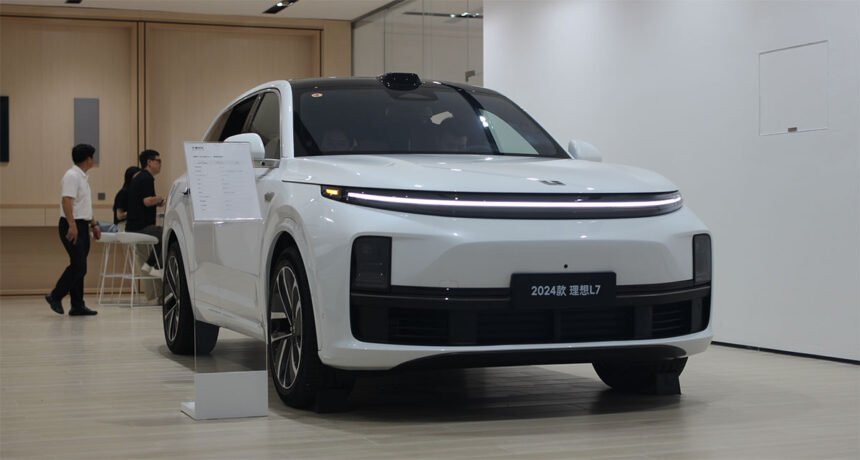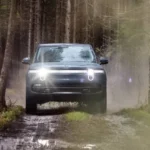Li Auto is set to revolutionize its smart driving capabilities by making LiDAR standard on all new models this year. This move comes as competition in the smart driving space heats up, with the company aiming to stay ahead of the curve.
According to a report from local media outlet 36kr, Li Auto will integrate LiDAR sensors into the smart driving systems of all new models, including facelifts of existing extended-range electric vehicle (EREV) models and new battery electric vehicle (BEV) models. This decision is part of the automaker’s strategy to enhance its smart driving solutions, which currently include AD Pro and AD Max.
The AD Pro system utilizes the Journey 5 chip from Horizon Robotics, offering a computing power of 128 TOPS. While the current hardware setup does not include LiDAR, the smart driving algorithms are provided by supplier QCraft, enabling pilot-assisted driving functions on highways.
On the other hand, the AD Max system boasts 2 Nvidia Orin X chips with a total computing power of 508 TOPS. Equipped with high-performance sensors, including an AT128 LiDAR from Hesai Technology, and in-house developed algorithms, this system supports pilot-assist driving on highways and the NOA function in urban areas.
In the upcoming new models, those equipped with the AD Pro system will also feature LiDAR technology, providing enhanced smart driving capabilities. Additionally, some models with the AD Pro system will receive an upgrade to the smart driving chip platform, utilizing the Horizon Robotics J6M chip and QCraft algorithms.
The decreasing cost of LiDAR, amidst a competitive pricing environment in the smart driving sector, has made car companies more willing to adopt this technology. Hesai’s new ATX LiDAR lineup, priced at around $200, has become more accessible with larger shipments.
Li Auto’s decision to standardize LiDAR on all new models reflects its commitment to staying competitive in the evolving smart driving landscape. With rivals like BYD recently unveiling their vehicle intelligence strategy and updates to 21 models, the pressure is on for traditional and new car-making forces to innovate and adapt.
As Li Auto gears up to implement LiDAR across its new models, the company is also considering adding the urban NOA feature to its AD Pro system in response to market trends. This strategic move demonstrates Li Auto’s agility and determination to lead the way in smart driving technology.







